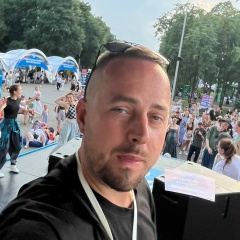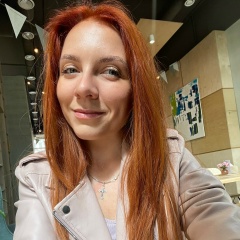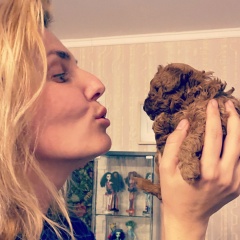#Заметкинаполяхдиссера
1) "Как вижу себя я"; 2) "Как видит меня моя матушка"; 3) "Как видит меня... Департамент полиции".
Один из самых интересных и нетривиальных героев моей диссертации - "вождь юных революционеров" Борис Евгеньевич Райков. Подпольщик, заключенный, ссыльный, биолог, краевед, методист, академик.
Кто бы сказал, что этот интеллигентный, чеховской внешности, студент в пенсне, один из самых упорных радикалов-обструкционистов, сотрясавший устои академической жизни в столичном университете на протяжении двух лет, устраивавший беспорядок в Суворинском театре на показе пьесы «Сыны Израиля» в ноябре 1900 года, участник сходок в январе 1901 года и организатор срыва занятий в ходе студенческой забастовки, двигатель одной из самых успешных подпольных организаций в Санкт-Петербурге - "Кассы радикалов", сторонник "левого блока" в студенческом движении, трижды арестованный (в четвертый раз его арестует, посадит и отправит на Беломорканал уже ленинградское ОГПУ). В 1904 году товарищ остепенится, женится ("во всем виноваты женщины") и пойдет по научной стезе, став одним из самых известных советских биологов, преподавателем-методистом ЛГПИ им. А. И. Герцена и одним из основоположников краеведения в Ленинграде.
1) "Как вижу себя я"; 2) "Как видит меня моя матушка"; 3) "Как видит меня... Департамент полиции".
Один из самых интересных и нетривиальных героев моей диссертации - "вождь юных революционеров" Борис Евгеньевич Райков. Подпольщик, заключенный, ссыльный, биолог, краевед, методист, академик.
Кто бы сказал, что этот интеллигентный, чеховской внешности, студент в пенсне, один из самых упорных радикалов-обструкционистов, сотрясавший устои академической жизни в столичном университете на протяжении двух лет, устраивавший беспорядок в Суворинском театре на показе пьесы «Сыны Израиля» в ноябре 1900 года, участник сходок в январе 1901 года и организатор срыва занятий в ходе студенческой забастовки, двигатель одной из самых успешных подпольных организаций в Санкт-Петербурге - "Кассы радикалов", сторонник "левого блока" в студенческом движении, трижды арестованный (в четвертый раз его арестует, посадит и отправит на Беломорканал уже ленинградское ОГПУ). В 1904 году товарищ остепенится, женится ("во всем виноваты женщины") и пойдет по научной стезе, став одним из самых известных советских биологов, преподавателем-методистом ЛГПИ им. А. И. Герцена и одним из основоположников краеведения в Ленинграде.
#Notes in the fields of the dissertation
1) "How I see myself"; 2) "As my mother sees me"; 3) "As he sees me ... Police Department."
One of the most interesting and non-trivial heroes of my dissertation is “the leader of young revolutionaries” Boris Evgenievich Raikov. Underground worker, prisoner, exile, biologist, local historian, methodologist, academician.
Who would say that this intelligent, Chekhovian appearance, a student in pince-nez, one of the most stubborn obstructionist radicals, shook the foundations of academic life at the capital's university for two years, arranged a mess in the Suvorin Theater at the screening of the play "Sons of Israel" in November 1900 of the year, a participant in a gathering in January 1901 and an organizer of the breakdown of classes during a student strike, the engine of one of the most successful underground organizations in St. Petersburg - "Cashbox of Radicals", a supporter of the "left bloc" in the student movement, arrested three times (for the fourth time arrests, puts and sends to Belomorkanal already Leningrad OGPU). In 1904, a comrade will settle down, get married ("women are to blame for everything") and go on a scientific path, becoming one of the most famous Soviet biologists, a teacher-methodologist of the Leningrad State Pedagogical Institute. A.I. Herzen and one of the founders of local history in Leningrad.
1) "How I see myself"; 2) "As my mother sees me"; 3) "As he sees me ... Police Department."
One of the most interesting and non-trivial heroes of my dissertation is “the leader of young revolutionaries” Boris Evgenievich Raikov. Underground worker, prisoner, exile, biologist, local historian, methodologist, academician.
Who would say that this intelligent, Chekhovian appearance, a student in pince-nez, one of the most stubborn obstructionist radicals, shook the foundations of academic life at the capital's university for two years, arranged a mess in the Suvorin Theater at the screening of the play "Sons of Israel" in November 1900 of the year, a participant in a gathering in January 1901 and an organizer of the breakdown of classes during a student strike, the engine of one of the most successful underground organizations in St. Petersburg - "Cashbox of Radicals", a supporter of the "left bloc" in the student movement, arrested three times (for the fourth time arrests, puts and sends to Belomorkanal already Leningrad OGPU). In 1904, a comrade will settle down, get married ("women are to blame for everything") and go on a scientific path, becoming one of the most famous Soviet biologists, a teacher-methodologist of the Leningrad State Pedagogical Institute. A.I. Herzen and one of the founders of local history in Leningrad.



У записи 10 лайков,
0 репостов.
0 репостов.
Эту запись оставил(а) на своей стене Константин Макаров































